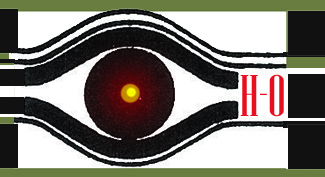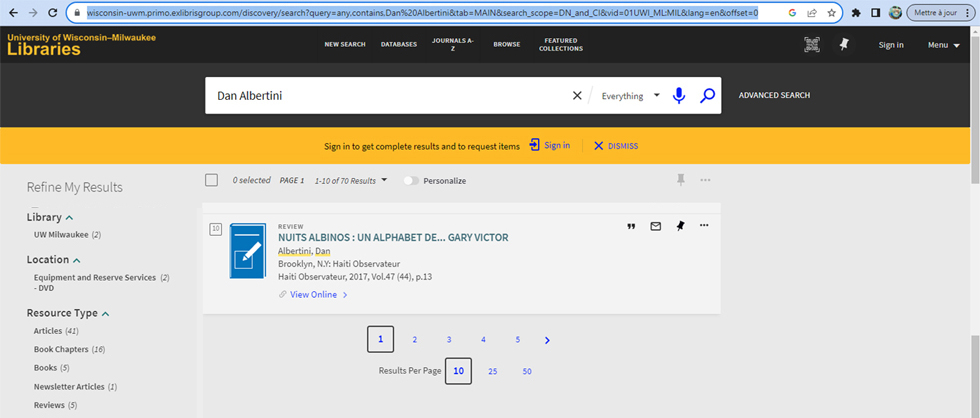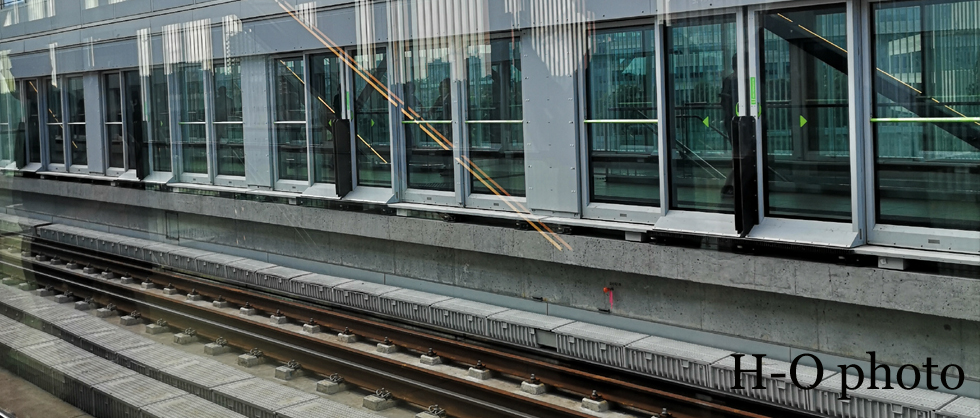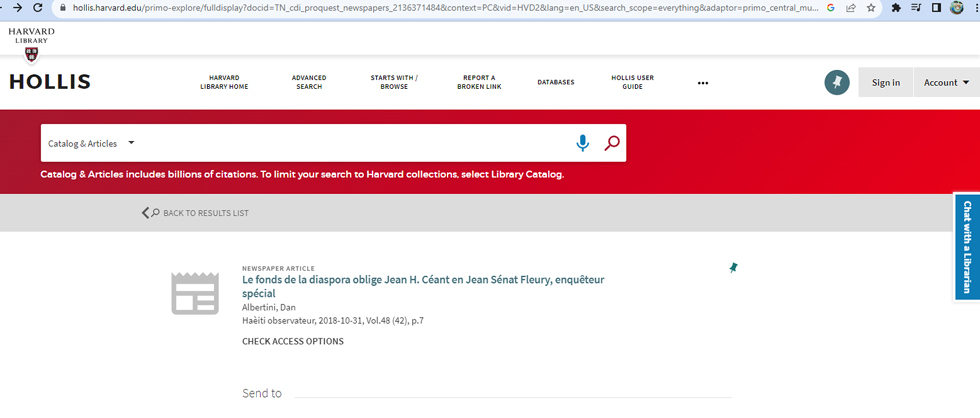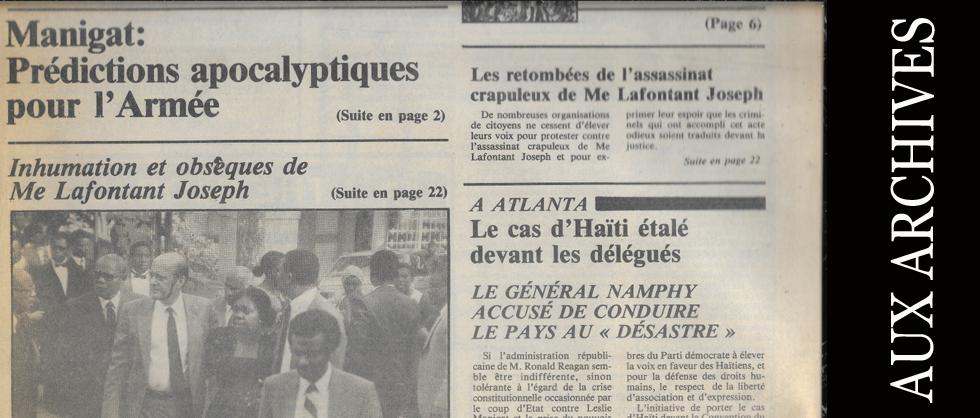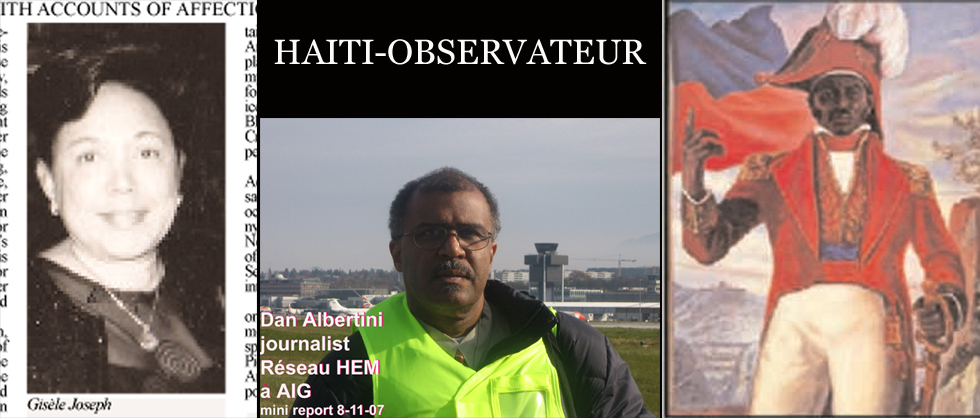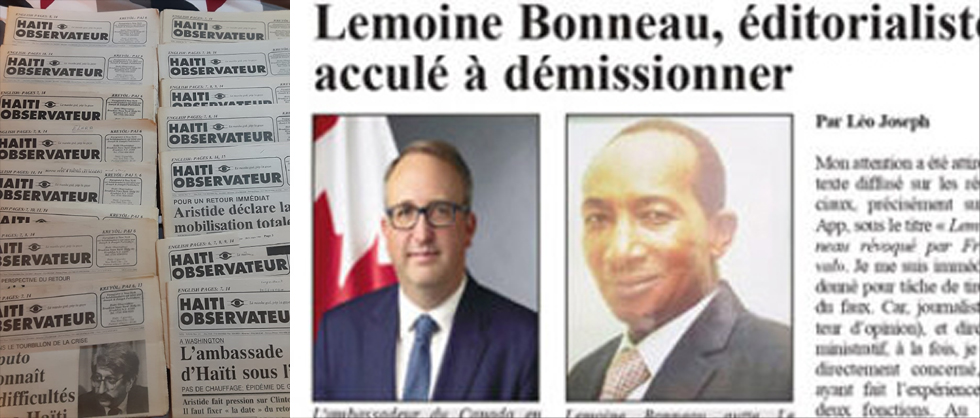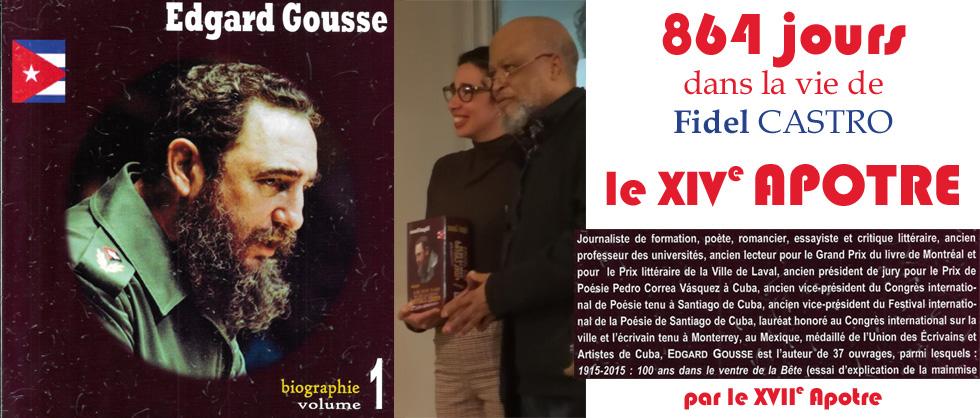
Certain sectors of the Haitian political class, the business community, and society in general pay little attention to the problem of impunity. Yet this phenomenon hinders development and prevents reconciliation of the nation with itself. Moreover, it arouses enmity among the citizens and polarizes relations between daughters and sons of the country. In the context of current electoral conflicts, we have the opportunity to ponder on this obstacle that thwarts our working together. Yet, this is indispensable for social and political harmony in a country already plagued by generational antago- nisms, economic divisions and social rivalries.
Indeed, the Haitian nation remains profoundly divided in terms of social, economic, and even racial origin. Traditionally, Haiti is an un- equal society which conceals cen- turies-old dissatisfactions that have never been addressed, injustices that have never been settled and social abuses forever trivialized.
Such social-political models inherited from the colonial era constitute the backdrop of Haitian social structures to which must be added post-Duvalier strife. As a result, the violence and social conflicts that marked the years following the fall of the Duvalier dynasty have exacerbated social and political rivalries, leading to an even more fragmented society. Besides the mistrust already settled among the citizens, the more recent phenomenon of kidnapping has added another layer of suspicion in human relations. There’s an outcry from the parents of the victims who call out for justice to be done. Indeed, the impunity enjoyed by the vast majority of hostage takers leaves a benign wound in a large swath of the population. It‘s traumatic that the Haitian judiciary system and the authorities in general have failed to punish the culprits and bring to a close this chapter of the spectacular abductions which have caused so much pain to many families.
In the context of the controversial elections of 2015 and those of last November 20, there is cause for concern that the phenomenon of impunity is still the order of the day. Consider that François Benoît’s Independent Electoral Assessment and Verification Commission (French acronym CIEVE) had found massive irregularities and frauds in the 2015 presidential elections and recommended sanctions against the guilty and beneficiaries of these illegal acts ! Nothing was done. This sets the stage for a negative reaction on the part of many citizens. Some may very well refuse to accept that the fraudsters remain unpunished. As things unfold, there’s a strong possibility that they will insist that justice be done this time. They may even resort to long term resistance to mark their dissatisfaction.
It’s expected that the leaders objectively assume their responsibilities in satisfying the democratic requirements of the citizens. They have an obligation to well manage the phase of demands regarding the vote of last November 20. Currently the electoral judges are at work, but there’s no assurance as to what will result from the operations now underway at the Voting Tabulation Center (French acronym VCT.) In light of what has transpired so far, the various reports presented show conflicts surrounding the analysis of the minutes by the electoral judges. As previously mentioned, they are to review a total of 12% of the vote, or more than 15 000 of the documents.
Press reports on CTV activities mention certain conflicts between the electoral judges and the contest- ing political parties, i.e. Fanmi Lavalas, Pitit Dessalines and LAPEH, which protest the ban imposed on their representatives to touch the minutes they are authorized to examine. A measure judged draconian by the three opposition parties which then decided to stop participating in the operation. Consequently, the methodology of the judges of the National Electoral Disputes Bureau (BCEN) is challenged by the protesting parties. This sets the stage for the latter to object to any possible result giving the final victory to Jovenel Moise, the candidate of the PHTK. To ensure confidence in the BCEN, the Provisional Electoral Council (French acronym CEP) is obligated to render an objective verdict, that is to say, their verdict must be dictated by a methodology uniformly accepted by all parties.
However, based on reports regarding the conduct of the verification process, there is no reason to believe that there is unanimity on the modus operandi dictated by the electoral judges. Responding to political demands to declare the winner of the 2016 presidential results by December 29, the CEP may so act. It’s impossible, however, to predict whether different sectors may not conclude that their inter- ests were adversely affected by such a decision. Meanwhile, the electoral judges would have helped to promote impunity, not unlike those who, by incompetence or collusion, allow the kidnappers to roam around freely.
Through the BCEN, the CEP is obligated to take the necessary judicial decision in the disputes stem- ming from the November 20, 2016 vote. If it were to avoid rendering a true verdict based on the law and justice, it will have helped ensure impunity to the electoral fraudsters.
